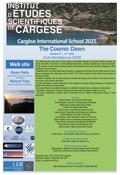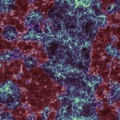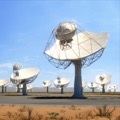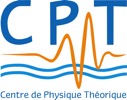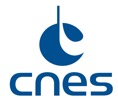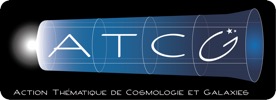Ecole thématique du CNRS
The Cosmic Dawn
October 5th – 11th, 2025, IESC Cargese, France
In recent years, there have been notable advances in the study of the formation of the first stars and galaxies in the young universe, and their contribution to the cosmic reionization process, in particular thanks to data obtained with the James Webb Space telescope. Telescope (JWST). They are added to those obtained by studies: i) on the optical depth of the Lyman alpha line in the spectra of the most distant quasars (carried out in the years 2000-2010) which suggest that the end of reionization is located at redshift z~6; ii) on the cosmic microwave background, in particular by the Planck collaboration (2020), who estimate the central epoch of reionization at z~8. Studies have attempted to identify the nature of the sources responsible for cosmic reionization directly by the detection of increasingly distant galaxies, using the Hubble Space Telescope (HST) or JWST. Astronomers focus their efforts on scanning cosmological fields in a multitude of wavelengths, providing ultra-deep photometric data. Also lensing clusters are systematically used as gravitational telescopes to study the most distant galaxies in the early universe. These surveys have made it possible to understand that star-forming galaxies, in particular the faintest ones, play an essential role in reionization.
However, some important questions still remain unanswered, such as those on the contribution of super-massive black holes and AGN with respect to other ionizing sources, or the topology of the reionization. This topic can be explored with future data at 21cm from the SKA radio telescope. JWST NIRSpec is expected to bring new insights into stellar, gas and SMBH masses, and AGN relative contributions to the light of the most distant galaxies. Other projects (in preparation) are designed to understand the nature of the sources of reionization. In particular, the Roman1 mission, or the Extremely Large Telescope (ELT2), whose spectrographs will make it possible to understand the physical properties of the first galaxies. We can also point out the results of the “Primeval Universe” group of the Euclid mission that will be made available in 2025.
In addition to these experimental efforts, massive cosmological simulations have recently been conducted to understand the formation of galaxies during the reionization epoch, as well as the reionization process itself. These numerical approaches involve a complex range of physical processes, which require appropriate observations to validate the models. Today we are truly at a decisive turning point in our knowledge of the universe at this time.
This is the XVIth school of Cosmology since 1993.
The organizers are committed to providing a safe and inclusive environment for the exchange of ideas for all participants. By participating in this meeting, you agree to follow the London Code of Conduct, as originally designed for the conference “Accurate Astrophysics. Correct Cosmology”, held in London in July 2015.
Just keep in mind that :
- IESC (or anyone else) will not contact you whatever reasons (accommodation,…). Beware of scams !
- A shuttle service between Ajaccio airport and the IESC will be organized by the IESC.
Lecturers
- Rebecca Bowler (University of Manchester)
- Denis Burgarella (Laboratoire d'Astrophysique de Marseille)
- Pratika Dayal (Kapteyn Astronomical Institute)
- Xiaohui Fan (Steward Observatory)
- Andrea Ferrara (Scuola Normale Superiore)
- Katarina Kraljic (Observatoire Astronomique de Strasbourg)
- Roberto Maiolino (Kavli Institute for Cosmology)
- Laura Pentericci (Osservatorio Astronomico di Roma)
- Joakim Rosdahl (Centre de Recherche Astrophysique de Lyon)
- Patrice Theule (Laboratoire d'Astrophysique de Marseille)
- Marta Volonteri (Institut d'Astrophysique de Paris)
- Saleem Zaroubi (Kapteyn Astronomical Institute)
School Schedule
- Arrival on Sunday, October 5th around late morning
- Departure on Saturday, October 11th morning
- The opening session on Monday
- Lectures hours are 9:00 - 12:30 and 14:30 - 18:00
Online courses and seminars
You can attend or watch courses and seminars on LAM youtube channel
